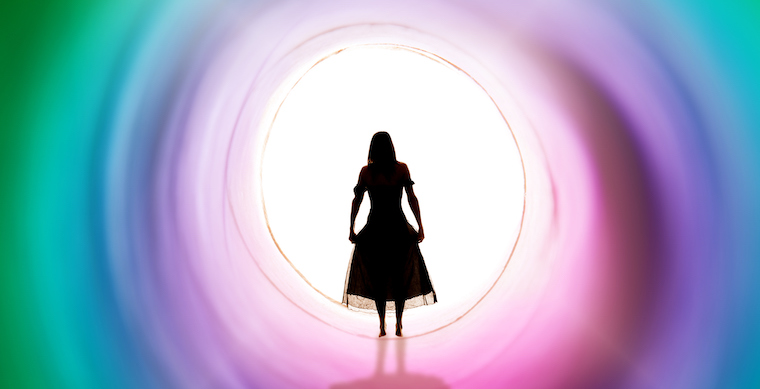"Out-of-body" experiences, such as near-death experiences, can profoundly increase people's ability to feel empathy for others, a paper from our Marina Weiler, PhD, and colleagues explains. And that could be good news for our troubled times.
In the paper, Professor Weiler notes that understanding the transformative effects of "OOB" experiences could help us develop ways to foster empathy for society's benefit.
People who undergo these experiences can undergo what is known as "ego dissolution” or "ego death" – the loss of the sense of self. These folks feel like they have disconnected from their physical form and joined with the universe at a much deeper, more profound level. They often report that their lives, and their views on life and death, are permanently changed.
These changes are often "prosocial," meaning that the experiencers become less concerned about individual wants and needs and more focused on greater societal connection. People often become more compassionate and more understanding. Many become more spiritual and more convinced that there is life after death.
Out-of-body experiences can seem more real than life itself, the researchers say. They can be brought on by brushes with death, hallucinogenic drugs and other causes. Exactly what is happening to cause these pro-social changes is not well understood, but the effects are real, and we may be able to leverage them to society's benefit.
“Empathy is a fundamental aspect of human interaction that allows individuals to connect deeply with others, fostering trust and understanding,” Professor Weiler told me. “The exploration, refinement and application of methods to enhance empathy in individuals – whether through OBE [out-of-body experience]-related ego dissolution or other approaches – is an exciting avenue with potentially profound implications for individuals and society at large.”
